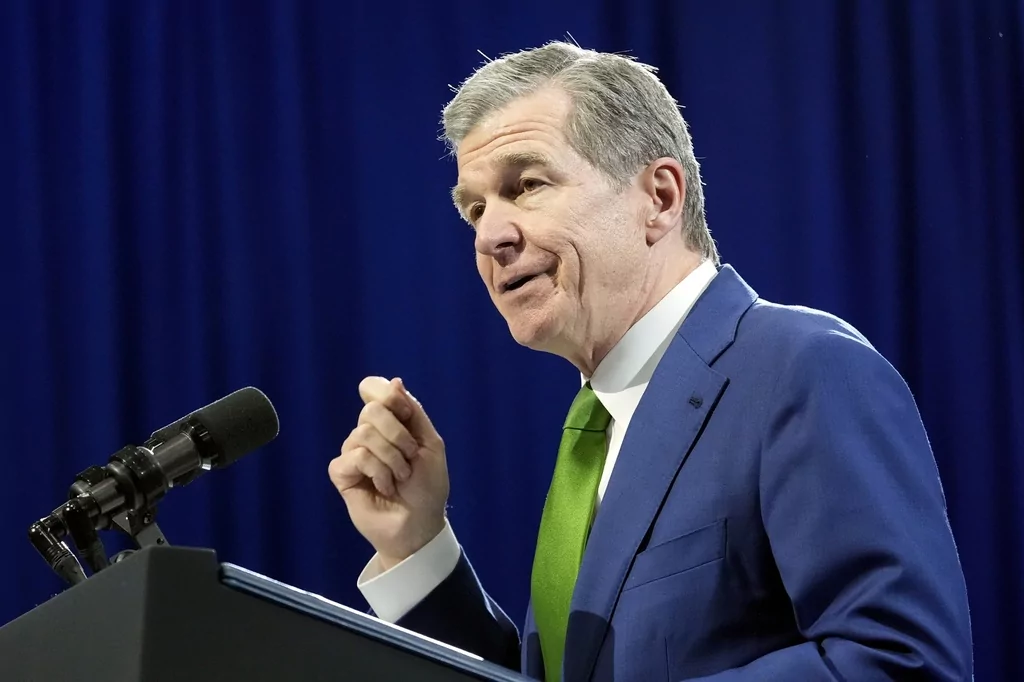

The Republican-controlled North Carolina state Senate overrode Gov. Roy Cooper’s (D-NC) veto on a bill that would strip executive power from the state’s newly elected Democrats and give it to state legislators.
While Senate Bill 382 was branded as a third round of relief to western North Carolina after the devastation caused by Hurricane Helene, the vast majority of the bill is dedicated to executive changes in government. The vote was 30-19 in the North Carolina Senate with one excused absence.
The legislation was secretly written and fast-tracked, with no committee hearings. The North Carolina House began its debate on the bill less than an hour after it was made public, according to the Raleigh News and Observer.
The bill makes wide changes to the executive branch’s power, with Gov.-elect Josh Stein (D-NC) and incoming Democratic Attorney General Jeff Jackson’s new roles being greatly impacted.
The bill would take away the governor’s ability to appoint members of the state election board, instead granting that power to the state auditor.
Some of the changes to the attorney general’s office include preventing the attorney general from taking a stance that is opposite of legislative leaders when the attorney general is involved in a lawsuit. The new law would also bar the attorney general’s office from participating in any legal argument that could lead to the invalidation of a state law enacted by the General Assembly.
While the state’s incoming governor, attorney general, and state superintendent are all Democrats, the incoming auditor is the lone Republican.
State Sen. Ralph Hise, a Republican, described the executive powers aspect of the bill as “restructuring to the executive branch of the government.”
On Hurricane relief, which is what the bill was branded as, $225 million from the state’s savings reserve would be transferred to the state’s Helene Fund. However, the money will remain unspent “until appropriated” by the legislature, among other actions.
Cooper called the bill and the Senate’s override of his veto a “disgrace.”
“Republican legislators today refused to send desperately needed funds to western North Carolina but instead used Hurricane Helene to mask political power grabs,” Cooper said in a statement.
“Their bill is a sham that moves money from one fund to another in Raleigh while ignoring the very real need for small business grants to recover and rebuild and stripping away an extension of enhanced unemployment benefits for people who lost their jobs because of the storm,” He continued.
Just before the vote, protesters in the Senate gallery began to shout, “Shame, Shame!” forcing Lt. Gov. Mark Robinson, who presides over the Senate, to clear the chambers completely, according to CBS 17.
“There is a time to protest, but it is not in the halls of this chamber,” Robinson said as protesters were being escorted out.
Anderson Clayton, the chairwoman of the North Carolina Democratic Party, was also present in the gallery.
“[Republicans] would do anything to make a mockery of people giving their hard work and time and energy to make a statement about how they feel,” Clayton said. “That this bill was forced through without any sort of actual public referendum on it.”
CLICK HERE TO READ MORE FROM THE WASHINGTON EXAMINER
A full override veto now depends on the North Carolina House, where three Republicans opposed the bill when it passed in the lower chamber last month. Because the state legislature needs ⅗ vote to override the veto, these three Republicans, all from the Western portion of the state that was most impacted by the hurricane, would need to change their vote.
Republicans are also set to lose their supermajority in the North Carolina statehouse when the new term starts in January.






